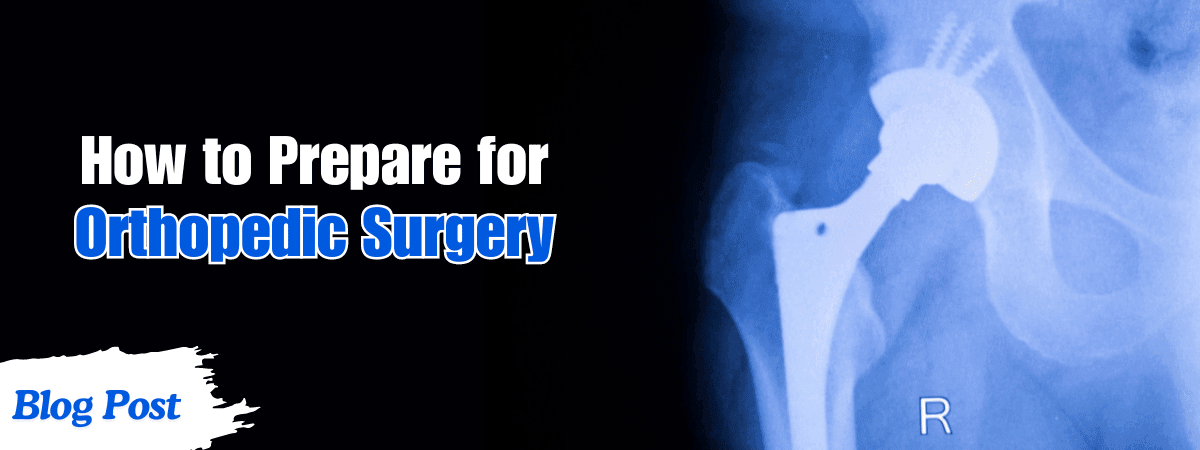
Orthopedic Surgery Preparation:
Orthopedic surgery can be a life-changing procedure, but proper preparation is key to a successful outcome. From pre-surgery instructions to post-operative care, here’s a step-by-step guide to help you get ready for your orthopedic surgery.
- Physician Clearance: Before undergoing any surgery, it’s crucial to obtain clearance from your physician. They will assess your overall health and determine if any additional tests or evaluations are needed before proceeding with the surgery.
- Insurance and Fees: Contact our insurance coordinator to understand the procedure-related fees and ensure that your insurance coverage is in order. Knowing the financial aspect beforehand can help alleviate any stress or concerns related to the cost of surgery.
- Five Days Prior: Follow your physician’s instructions regarding the cessation of blood thinners, non-steroidal anti-inflammatory drugs (NSAIDs), supplements, and vitamins. Discontinuing these medications may be necessary to reduce the risk of complications during surgery.
- Pre-Op Visit: Attend your pre-operative visit to review the details of the procedure, sign consent forms, and provide any necessary medical records, including x-rays and investigation reports. Make sure to bring a list of all medications you are currently taking.
- Day Prior: The day before surgery, refrain from consuming food or drink after midnight as instructed by your surgeon. Take a thorough shower using antibacterial soap and avoid using cosmetics to reduce the risk of infection.
- Arrival and Registration: Arrive at the hospital at the designated time instructed by your healthcare provider. For open or minimally invasive surgery, you may be admitted a day before the procedure, while endoscopic procedures may require you to arrive 3-4 hours before the scheduled surgery. Remember to bring your patient ID and insurance information for registration.
- Post-Surgery Care: After the surgery, you will be transferred to a recovery room where you will be monitored closely for a few hours. Depending on the type of surgery, you may be able to walk and be discharged the next morning for endoscopic procedures, while open or minimally invasive surgeries may require a day of rest before discharge.
- Gradual Activity Increase: Following discharge, it’s essential to gradually increase your activity level as directed by your surgeon:
- Days 1-2: Focus on sitting and resting.
- Days 2-3: Begin standing and walking short distances.
- Days 3-4: Gradually increase activity, including walking to the restroom and eating meals while sitting.
- Day 4: Discharge from the hospital or surgical center.
- Follow-up Visits: Attend all scheduled follow-up visits with your surgeon as they are essential for monitoring your recovery progress. During these visits, wear a belt at home for two weeks to support the surgical site and aid in healing. Follow-up appointments typically include visits at two weeks, six weeks, three months, and six months post-operation.
By following these steps and instructions, you can prepare yourself both mentally and physically for your orthopedic surgery, setting the stage for a smooth recovery and optimal outcome. If you have any questions or concerns, don’t hesitate to reach out to Dr. Nikhil Gadre for guidance and support. Book Appointment


Add a Comment